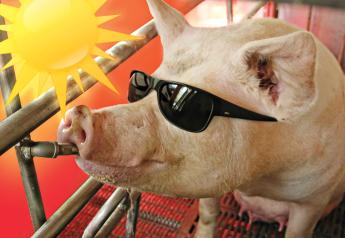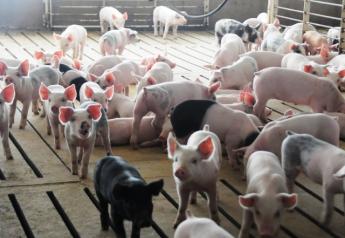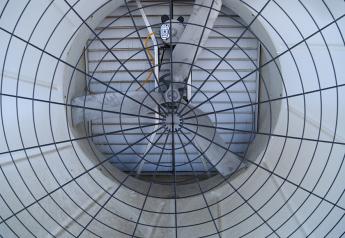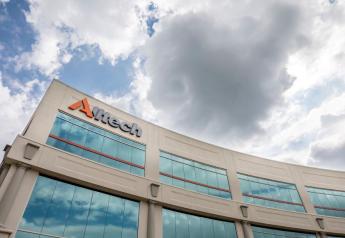5 Ways USDA Protected Animal Ag in 2020
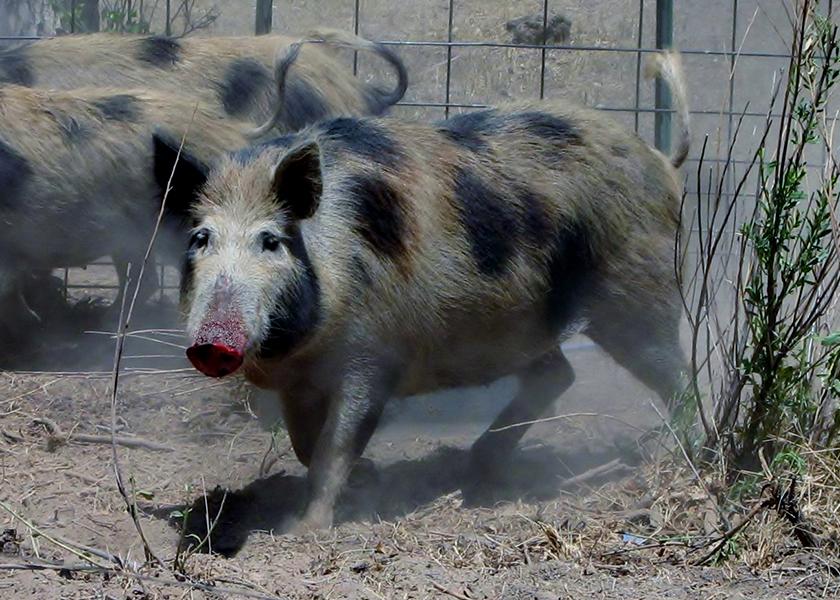
From feral swine damage prevention to foot-and-mouth disease vaccine purchases, the USDA Animal and Plant Health Inspection Service (APHIS) has been focused on critical work for animal agriculture amidst the COVID-19 pandemic.
“This has been a year like no other,” said USDA Under Secretary for Marketing and Regulatory Programs Greg Ibach in a release. “Even with the challenges brought on by the COVID-19 pandemic, APHIS’ employees continued to provide great service and support for the country’s farmers, ranchers, and citizens. Protecting American agriculture requires constant vigilance and effort, and APHIS employees found safe, effective, and creative ways to accomplish our mission this year.”
Here are five noteworthy achievements in 2020:
1. Foot-and-Mouth Disease Vaccine Purchase
APHIS invested $27.1 million in foot-and-mouth disease (FMD) vaccine in July, the first purchase for the National Animal Vaccine and Veterinary Countermeasures Bank created by the 2018 Farm Bill. The purchased vaccine would be used in the event of an FMD outbreak to protect animals and help stop the spread of disease, USDA said in a release.
“While APHIS has kept FMD out of the country since 1929, having access to vaccine is an important insurance policy,” USDA said. “The new U.S.-only vaccine bank—a concept APHIS officials have long discussed with stakeholders and industry—allows APHIS to stockpile animal vaccine and related products to use in the event of an outbreak of FMD or other high-impact foreign animal diseases.”
2. Trade Preservation
U.S. shipments encounter various delays at foreign ports throughout the year. APHIS negotiates with other countries to resolve these delays and keep trade flowing smoothly. In 2020 alone, APHIS resolved delays for hundreds of shipments. According to USDA, these actions preserved $56 million worth of trade and helped farmers’ products continue to their ultimate market destinations. Additionally, APHIS resolves challenges posed by pest detections, trading partner regulatory changes and other issues to preserve threatened markets for U.S.-origin goods, including meat and meat products to Qatar valued at $46 million.
3. Feral Swine Damage Prevention
Feral swine continue to wreak havoc across the country and cause more than $1.5 billion annually in damage and management costs nationwide. If left unchecked, feral swine cause significant damage to all aspects of agriculture, natural resources, historical and cultural sites, and people’s property and pets. Through cooperative state-federal work, APHIS protected 192 million acres from feral swine damage across 37 states and 3 territories in 2020, USDA reported. This work also directly protected 119 threatened and endangered species and habitats.
4. Avian Influenza Eradication
Animal health officials identified several cases of H7 low pathogenic avian influenza (LPAI) in North and South Carolina in March and April. APHIS and partners responded quickly because this type of LPAI can mutate into a highly-pathogenic form, which is deadly to commercial poultry, USDA said.
“As feared, a single case of highly pathogenic avian influenza was detected in the same area during the response,” USDA said. “In all, the outbreak was limited to a dozen cases of low pathogenic and one highly pathogenic case in a small geographic area. The combined efforts of APHIS and its partners prevented spread to other areas, which limited the overall impact on the poultry industry.”
5. SARS-CoV-2 Testing and Producer Support
As the national animal health reference laboratory, APHIS established confirmatory testing services for animal samples for SARS-CoV-2 and tested more than 500 animals for the virus, confirming 66 animals as positive, the release noted. APHIS collaborated with 37 labs in the National Animal Health Laboratory Network (NAHLN) to prepare them for added COVID-19 testing services, including 22 with capability to test human samples, and worked closely with both animal and public health officials on a variety of COVID-19 related projects. APHIS also developed a National Incident Coordination Center to support producers impacted by COVID-19 closures and slowdowns at meat processing plants. In addition, the National Veterinary Stockpile quickly deployed more than $2.24 million worth of critical equipment, supplies and services to directly support affected producers.
More from Farm Journal's PORK:
How Colorado Eliminated Feral Hogs
USDA Confirms Highly Pathogenic H7N3 Avian Influenza in Turkey Flock
3 Ways You Can Help Keep African Swine Fever Out of the U.S.
Livestock Industry Praises USDA’s First Vaccine Bank Purchase
USDA Awards $14.4 Million in Farm Bill Funding to Protect Animal Health
Feral Hog Eradication in Missouri: Let the Trapping Continue



